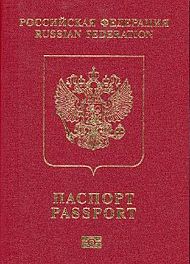By Terry M. Mandeville Focus on Culture & Heritage Editor for FRUA.
A Name Day is a celebration on a particular day associated with one’s first name. Popular throughout Europe and the ex-Soviet republics, it is a celebration of the source of one’s name. Originally celebrated on the Orthodox Christian or Catholic Saints’ Feast Days that were associated with the saint or martyr for whom one was named, Name Days have been a tradition in these cultures since the Middle Ages. The church promoted these celebrations rather than birthday celebrations. (The latter was viewed as pagan).
In Eastern Europe, Name Day is often celebrated with more enthusiasm than an actual birthday. Friends and family send cards, chocolates, flowers, and presents. Traditional Christian celebrations of the day include attendance at the “divine services” that mark the Saint’s Feast Day. In modern times, and after decades of Soviet rule, the celebrations are more inclined to be secular in nature. There may be a big party that lasts well into the night.
The day on which a particular name is celebrated will vary from region to region according to a variety of things. The calendar of Saints’ Feast Days is officially established by the dominant church of the region. There are different lists for Roman Catholic and Orthodox Christian churches, and even from synod to synod (roughly country to country) within the Orthodox communion of churches. Patron saints and other saints who are important in a particular region may have more “Days” in that area.
A Name Day may also come from an historical event, important people in history, or an ancient tradition. In areas that have no history of Saints’ Feast Days, the day may be borrowed from other churches or cultures. Name Days are not indigenous to most of the Central Asian countries, but the practice of celebrating these days began during the Soviet times.
Following are a sampling of names from our FRUA, INC cultures and some of the associated Name Days and meanings of the names. For more, see the resources at the end of the article.
Armenian Name Days (primarily from Armenian Orthodox Feast Days)
- AREVIG (f): April 8 or April 30 — “like the sun”
- ARMEN (m): Sept. 21, Armenian Independence Day — from the name of the country
- BEDROS (m) (form of PETER): Jan. 16, Dec. 7 for Apostles Peter and Paul — “stone”
- BOGHOS (m) (form of PAUL): July 7 for Apostle Paul, Nov. 8, Dec. 7 — “small”
- HAGOP (m) (form of JACOB): July 26 for Jacob the Forefather — “supplanter”
- HAIG (m) (HAIK, HAYK): Sept. 21 for Armenian Independence Day — “Armenian”
- HOVSEP (m) (form of JOSEPH): June 14, July 26, Oct. 22, or Nov. 6 — “he will add”
- KRIKOR (m) (form of GREGORY): Jan. 27, June 23, July 28, or Sept. 27—“watchful”
- LUCINE (f): Aug. 6 — “moon”
- MARAL (f): Feb. 3 — “deer”
- MARGAARID (f) (form of MARGARET): July 30 — “pearl”
- SAHAK (m) (form of ISAAC): June 14, July 26 for the forefathers — “he laughs”
- TAKOUHI (f): Sept. 7 — “queen”.
- TANIEL (m) (form of DANIEL): June 26, July 28, or Dec. 6 — “God is my judge”
- YEVA (f): Jan 5 — “to breathe”
Azerbaijani Name Days (primarily from important dates in the culture and linking names and meanings to Feast Days from other cultures)
- AKASMA (f): July 2 — “white climbing rose”
- AYSEL (f): Oct. 21 — “moonlight”
- DENIZ (f / m): March 20 — “the sea”
- DEVRIM (f / m): Nov. 26, the Color Revolution — “revolution”
- HASAD (m): Oct. 15 — “harvest”
- ISRA (f / m): the Islamic holiday Rajab — “freedom”
- KARI (f): Nov. 25 — “flows like water”
- KEREM (m): Dec. 16 — “noble and kind”
- MIRZA (m): July 12, birthday of Mirza Fatali Mammad Akhundov — “good child”
- RASHIDA (f) / RASHID (m): Nov. 26 — “righteous”
- SARILA (f): Aug. 19 — “water flood”
- SELIM (m): Oct. 22 or Nov. 17 — “peace”
- SILA (f): Dec. 31 for the Day of Solidarity of World Azeris — “homesick”
- UMAY (f)/ UMIT (m): Sept. 30 — “hopeful” / “hope”
- ZERRIN (f) / ZEHEB (m): Oct. 18 — “golden” / “gold”
Bulgarian Name Days — Immin Den (primarily from Bulgarian Orthodox Feast Days)
In Bulgaria, Name Day is a day of visitors. No invitation is needed; everyone is welcome. The Name Day celebrant must host all who come to visit. Common greetings of the day include, “May you hear your name from grandchildren and great- grandchildren,” “May you hear your name only in good things,” and “May your name be healthy and well.”
- AGNESA (f) (ANESA, AGATA, INESA): Jan.21 or May 2 – “pure”
- ANTOANA (f) / ANTON (m) (TONCHO, DONYO, TOTKA): Jan. 17 or July 10 — “priceless”
- ASEN/KA (ASYA): June 17 — “safe” – the royal name of several Tsars
- BOYANA (f) / BOJAN (m) (BONA, BOICHO, BOYKO): March 28 — “battle”
- CRISTO (HRISTO): Dec. 24 — “Christ carrier”
- DESISLAV/A (DESSI): June 17- – “finding glory”
- GROZDAN/A (GROZO): Feb. 1, Trifon Zarezan – “grapes”
- KONSTANTIN/A (KOSTA, KOCHO, KOTCHE): May 21 — “steadfast”
- KAMEN/KA (KREMEN, MAIA): June 29 — “stone”
- MALINA (f) (MALINKA): Palm Sunday – “strawberry” or “raspberry”
- MARIYA (f) (MAJ, MANYA, MARA): Aug. 15, March 31, or July 22 — “bitter”
- MARTIN/A (MARIO, MARKO): March 1 for Baba Marta Day — “warlike”
- METODI (m): May 24, Education, Culture & Slavonic Literature Day — “methodical”
- PENKA (f) (PENA): Oct. 14 – “foam”
- STOYAN/KA (STANKA, TSONA, ZANKA): Dec. 27 – “stay alive”
- SVETLO (f): May 16 — “sacred”
- VELIZAR/A: Easter – “bright light” or “sword hand,” a descendant of Belisarius
- VESELIN/A (VESSELA, VESKA): Feb. 1 (Trifon Zarezan) – “cheerful”
Georgian Name Days (primarily from Georgian Orthodox Feast Days)
- AMELIA (f): July 24 — “industrious”
- BEDISA (f): Aug. 30 – “it is fate”
- ELENE (f): Aug 18 — “bright”
- ELISO (f) (form of ELIZABETH): Nov. 19 — “dedicated to God”
- ENDZELA (f): Aug. 5 — “snowdrop”
- EVA (f): Dec. 24 — “life”
- GIORGI (m): Nov. 23 for Giorgoba, St. George’s Day — “farmer”
- GRIGOL (m) (form of GREGORY): March 12 — “watchful”
- IMEDA (m): Nov. 30 – “hope”
- KONSTANTINE (m) (KOTE): Nov. 17 for Prince Kote Abkhazi – “steadfast”
- MIKHEIL/INA(MICAH, MYKHALIA): Sept. 29 — “who is like God?”
- NINA / NIKOLOZ (NINO): Jan. 14 for St. Nino — “victorious people”
- OKHROPIR (m): Oct. 18 – “gold mouth”
- VENERA (f): July 24 — “loveliness”
- VARDO (f): July 2 – “rose”
Hungarian Name Days – Névnap (primarily from Roman Catholic Saint Days) On one’s Name Day in Hungary, a woman is usually given flowers from friends and co-workers. A man is given a bottle of alcohol. Children usually bring candy to school.
- ALIZ (f): Nov. 14 – “kind”
- BENCE (m): Aug. 23 – “victor”
- CSABA (m): July 6 — “shepherd”
- DORA (DOROTTYA, TEODORA (f)): Feb. 6 – “divine gift”
- ELEK (m): July 17 – “defender”
- FARKAS (m): Oct. 31 – “wolf”
- FRIGYES (m): July 18 – “peace, might”
- GEDEON (m): March 28 – “warrior”
- GYULA (m): Feb. 12 – name of an honor
- HUNOR (m): Sept. 10 – name of an ethnic group
- JOLAN/A: Sept. 15 – “violet blossom”
- KOLOS (m): Feb. 15 – “scholar”
- MIKSA (m): Oct. 12 – “similar to God”
- SZERV/AC (m) – May 13 – “freed”
- TIHAM/ER: July 1 – “likes silence”
- ZOLTAN (m): March 8 — “chieftain”
- ZSUZSANNA (f) (ZSAZSA): Feb. 19 – “lily”
Kazakh Name Days (primarily from important dates in the culture and linking names and meanings to Feast Days from other cultures)
- ABAY (m): Aug. 10 for Abay Qunanbayuli, poet – “blue Nile”
- AKHMET (m): Jan. 28 for Akhmet Baytursinuli, intellectual – “most praiseworthy”
- ALOSHA (m) (ALEKSEI): June 27 – “defender of mankind”
- ANATOLI (m): July 3 – “sunrise”
- ARSEN (m) (ARSTAN): Dec. 9 – “brave”
- KATJA (f): Nov. 25 – “pure maiden”
- DARIUS (m): July 17 – “possess good”
- DARYA (f): Dec. 19 – “sea,” “something given,” or “preserver”
- MARIASH (f) (form of MARIA): March 12 – “bitter”
- MERUERT (f): July 30 – “pearl”
- NAYRYZ (m): March 22 – for the spring festival of the same name
- OLZHAS (m): May 18 for Olzhas Omaruli Suleimenov, poet
- OSMAN (m): April 29 for Osman Batyr, freedom fighter
- SERIOGA / SERGEI: Oct. 7, Sept 25, or Sept. 28 – “high, respectable”
- TOKTAR (m): July 27 for Toktar Aubakirov, cosmonaut
- VITALY/VITALINA: April 22 – “vital”
- YANA (f): July 25– “charity of God”
- ZOIKA (f) (ZOIA): Feb. 13 – “life”
Kyrgyz Name Days (primarily from important dates in the culture and linking names and meanings to Feast Days from other cultures)
- AIDA / ADILET: May 5, Constitution Day – “justice”
- AIBEK (m): Aug. 6 — “moon”
- AIGUL (f): Palm Sunday — “moon flower”
- ALMAZ (m): Dec. 27 — “diamond”
- ALTINAI (f): Aug. 6 — “golden moon”
- ASKAR (m): Nov. 10 for Askar Akayevich Akayev, President – “army”
- AZAMAT (m): July 17 — “very good”
- AZIZ (m): July 24 — “powerful”
- CHOLPON (f): April 16 – “Venus (the planet)”
- DINARA (f): April 27 — “dawn”
- EMIL (m): Jan. 31 – “flattering”
- JYRGAL (f / m): May 4 – “happiness”
- NAZGUL (f): Palm Sunday — “cute flower”
- TIMUR (m) (TIMURBEK): April 8, for Tamerlane, the conqueror – “iron”
- ZARINA (f): Oct 18 – “golden vessel” or “queen”
Latvian Name Days — vArdadienis (primarily from official national days)
In Latvia, Name Days are set on certain official days. Each day of the year is a Name Day, with three to four names for each day frequently. In modern times, Leap Day (February 29) and May 22 are reserved for those who do not have a Name Day in the regular calendar. At work, colleagues pay respect by giving flowers, candy, and presents to the person who has a NameDay. At home, there is usually a cake and presents.
- BEATRISE (f): Oct. 25 – “blessing”
- EDUARDS (m) (form of EDWARD): May 26 – “blessed”
- FILIPS (m): April 6 – “lover of horses”
- FRICIS (m) (FRIDRIHS) (form of FREDERICK): Nov. 14 – “peaceful ruler”
- HELENA (f) (ILONA): Aug. 18 – “bright”
- KRISTAPS (m) (form of CHRISTOPHER): Dec. 18 – “Christ bearer”
- MADARA (f): July 30 — from a flowering plant called cleavers
- RIHARDS (m) (form of RICHARD): Feb. 7 – “brave king”
- ROBERTS /ROBERTA: Jan. 14 – “bright fame”
- SOFIJA (f): – May 15 – “wise one”
- STEFANS (m): Aug. 2 – “crowned with laurel”
- VALDIS (m): April 4 / VALDA (f): Dec. 11 — “rule”
- VERONIKA (f): Feb. 4 – “bringing victory”
- VILHELMS (m) (form of WILLIAM): May 28 – “resolute protector”
Lithuanian Name Days
Name Day celebrations begin early in the morning in Lithuania. Upon arising, the celebrant finds garlands hung around the doorframe (not in the middle — that would signify a death). In the summer, these garlands are made of leaves and flowers; in the winter, evergreens are used. A chair is also decorated and ready for when the celebrant comes to the breakfast table. The celebrant, especially a child, is lifted in the chair three times so that everything will go well in the next year. Then the celebrant is congratulated and given gifts, and guests sing “Valio!,” a congratulatory song. The celebrant wears a sash over one shoulder, and celebrations go on all day. All friends and acquaintances make an effort to give the celebrant best wishes in person.
- AUSRA (f): April 27 — “dawn”
- AZUOLAS (m): June 2 — “oak”
- DAINA (f): March 4 — “song”
- DALIA (f): April 9 – “luck”
- DARIUS (m): July 17 — “possess good”
- EGLE (f): April 4 — “fir tree”
- GIEDRE (f): March 5 / GIEDRIUS (m): April 17 — “serene”
- GINTARE (f): May 14 / GINTARAS (m): May 5 — “amber”
- HERKUS (m) (HENRIKAS) (form of HENRY): July 13 — “home ruler”
- JUOZAPAS (m) (JUOZAS) (form of JOSEPH): March 19 — “God will add”
- KESTUTIS (m): Feb. 21 — “to cope”
- LAIMA (f): March 8 — “luck”
- ONA (f): July 26 — “graceful one”
- RASA (f): Feb. 25 — “dew”
- UGNE (f): Feb. 13 — “fire”
Romanian Name Days (primarily from Romanian Orthodox and Roman Catholic Feast Days)
- ADELA (f) (ADELINA): April 22 — “noble”
- BENIAMIN (m): Jan. 17 — “son of the south”
- BOGDAN /A: Jan 6 — “given by god”
- CLAUDIA (f) / CLAUDIU (m): Nov. 9 — “gladiolus”
- CONSTANTA (f) / CONSTANTIN (m) (COSTEL, DINU): Sept. 15 — “constant”
- CORNELIA (f): Aug. 21 — “sun”
- DANA (f) / DANUT (m) (DAN): Dec. 18 — “God is my judge”
- FELICIA (f) / FELIX (m): May 20 — “lucky”
- GHENADIE (m) (EUGEN): Jan. 6 — “aristocrat”
- IANCU (m) (form of JOHN): Feb. 29, Sept. 13, or Oct. 21 — “God’s gracious gift”
- LAURA (f) / LAURENTIU (m): June 17 — “laurel”
- LUCIA/N (LUCA): Dec. 13 — “light”
- RAHELA (f) (form of RACHEL): Feb. 4 — “ewe”
- RUXANDRA (f) (ROXANA): April 27 — “dawn”
- VLAD (m): June 14 — “rule”
Russian Name Days – Imeniny – Moldovan and Belarus Name Days (primarily from Russian Orthodox Feast Days)
- ALEXANDRA (f): May 6, May 31, June 23 / ALEXANDER (m) (ALEXEI, ALOSHA) – Nov. 19 – “defender of mankind”
- ANASTASYA (f) (ASIA, STACIA, NATASHA): Jan. 4, Feb. 4, or Nov. 11 – “resurrection”
- ANDRE/A: July 10 or Nov. 30 — “manly” / “womanly”
- ANGELINA (f): July 14, or Dec. 23 – “messenger”
- ANNA (f) (HANA): Feb. 16, Feb. 23, April 8, July 18, or Dec. 22 — “grace”
- DIMITR/A (DMITRI, DYMITRIUSZ, MITKO): Oct. 26 – from the Greek god Demeter
- EKATERINA (f) (KARINA): Dec. 7 – “pure maiden”
- ELENA (f) (GALINA): July 24 – “bright, beautiful”
- GRACJA(f): June 13 — “grace”
- IRINA(f): April 29, May 14, or Oct. 1 – “peace”
- IVAN/KA (IOAN, VANJA): Jan. 7, May 24, June 25, or July 8 — “God’s gracious gift”
- JOSEF (m): March 19 or Aug. 6 — “God will increase”
- JULIA (f) (YULIA): Jan. 3, May 31, June 16 – “youthful”
- LARISSA (f): April 7 – “sea bird”
- LILIANA (f) (LILIJA): Feb. 14, March 10, May 20, July 27, Sept. 6, or Oct. 27 – “lilies”
- MARIA (f): Jan. 19, Feb 8, Feb 19, March 31, April 14, June 20, June 22, Aug 4 – “bitter”
- MARINA (f): March 12, July 30, or Dec. 29 – “sea maiden”
- MAXIM (m): Jan. 21 — “greatest in excellence”
- NADEZHDA (f) (NADIA): Aug. 1, Sept 30 — “hope”
- NATALIA (f):Sept. 8 – “birth day”
- NICOLE (f) / NICHOLAY (m): Dec. 6 — “victory of the people”
- OKSANA (f): April 12 — “glory be to God”
- OLGA (f): July 24 – “holy”
- SVETLANA (f): Feb. 6, Apr. 2 – “light”
- TATYANA (f): Jan. 25 – from a Roman family name
- VIKTOR/IA: Nov. 11 – “conqueror”
- YURY (m) (GEORGI): May 6 – “farmer”
Serbian and Macedonian Name Days – Znamanje (primarily from Serbian Orthodox Feast Days)
When a child is born, the priest comes to name the child. The Name Day is not a celebration for the individual as much as it is a family event. In Serbia, the tradition of “Slava” is celebrated on the feast day of the patron saint of the family.
- DRAGUTIN (m) (DRAZEN/KA): April 2 or Nov. 4 — “precious”
- DUBRAVKA (f) / DUBRAVKO (m): May 21 or Sept. 12 — “oak grove”
- JAGODA (f): Feb. 5 — “strawberry”
- JAVOR/KA: March 24 — “maple tree”
- JELISAVETA (f) (ELIZABETA): July 4, Nov. 18, or Nov. 20 — “dedicated to God”
- NEDJELJKO (m): May 6 or Aug. 8 — “Sunday”
- OBRAD (m): May 4 — “to make happy”
- RUŽA (f) (RUŽICA): Aug. 23 or Sept. 4 — “rose”
- SLAVA (SLAVKO): June 21 or Dec. 5 — “glory”
- STAN/A:April 11 — “stand”
- TVRTKO (m): Feb. 21, March 11, Aug. 9 — “hard”
- VESNA (f): March 21 — “messenger”
- VLAST/A:Nov. 30 — “peace”
- ŽELJKA (f) / ŽELJKO (m): May 23, Aug 31, or Sept. 19 — “desire”
- ZLATA/N (ZLATKA): July 19, Sept. 13 — “gold”
Slovakian Name Days – Meniny (primarily from Roman Catholic calendar of saints) In the past, it was required that Slovakian parents choose the name for a child from only certain names. This has changed, although it is still common to choose a saint’s name.
- ALBERT (m): April 8 — “noble”
- ALFRED (m): June 19 – “elfin”
- BARBORA (f): Dec. 4 – “foreigner”
- BRIGITA (f): October 8 — “protective”
- BOHUMIR (m): Nov. 8 – “favored of the lord”
- DALIBOR/A: Jan. 20 – “to fight afar”
- DRAHOMIR/A (DRAZA): Jan. 19 – “loved one”
- JARMIL/A: April 28 – “favor of spring”
- LUBOMER (m): Aug. 13 / LUBOMIRA (f): Aug. 9 – “love peace”
- MILICA (f): Aug. 17 – “ruler”
- MONIKA (f): May 7 – “advisor”
- OLEG (m): Sept. 10 – “sacred”
- ROMAN (m): February 23 — “from Rome”
- STANISLAVA (f): June 9 / STANISLAV (m): Nov. 13 – “glory of the camp”
- ZORA (f): Jan. 22 – “sunrise”
Ukrainian Name Days (primarily from Armenian Orthodox Feast Days)
- AVRELA (f) / AVRELE (m): Dec. 23 – “boar battle”
- BOHUSLAV/A (SLAVKA, SLAVO): June 24 — “glory from God”
- CLARA (f): June 1 – “clear”
- EMIL/Y (AMIL): Aug. 8 – “energetic”
- ILARIA (f): March 19 / ILARION (m): Oct. 21 (form of HILLARY) — “cheerful”
- ISABEL (f): April 24 — “dedicated to God”
- KSENIA (f) (OKSANA): Jan. 23 — “hospitable”
- MARCEL (m): Aug. 1 – “little warrior”
- MAURA (f) (MOIRA): Oct. 31 – “moor”
- MAYA (f) (MAY): Jan. 26 – uncertain, perhaps “mother” or “great one”
- NESTOR (m): Oct. 27 – “homecoming”
- PROKIP (m) (PROKOP): July 8 for Saint Prokopios – “progress”
- SERAPHINA (f) / SERAPHIM (m): July 29 – “fiery ones”
- VALERIE (f): June 6 / VALERIAN (m): June 1 – “strong”
Uzbek Name Days (primarily from important dates in the culture and linking names and meanings to Feast Days from other cultures)
- ANASTASIYA (f): Jan. 4, Feb. 4, or Nov. 11 – “resurrected”
- LAMARA (f): March 12 — “bitter”
- TATYANA (f) (TANIA): Jan. 12 – from a Roman family name
- YUSUF (m) (form of JOSEPH): June 14, July 26, Oct. 22, or Nov. 6 — “he will add”
- ZAHIR (m): Feb. 23 for Zahir ud-din Muhammad Babur, conqueror – “helper”
Resources for more information on name days: FIND YOUR NAME DAY: http://calendar.zoznam.sk/http://www.happynameday.com/http://www.mynameday.com/
http://www.americannamedaycalendar.com/
ROMANIA http://orthodoxwiki.org/List_of_Romanian_Saints RUSSIAhttp://www.behindthename.com/namedays/lists/rus.phphttp://www.roses.ru/russian_holidays.shtml UKRAINEhttp://www.rootsweb.ancestry.com/~polwgw/namelist.html#ukrainian


![Celebrities helping Riag Members……[and other kids]](https://riag.ie/wp-content/uploads/2020/04/Covid-Resources.jpg)


